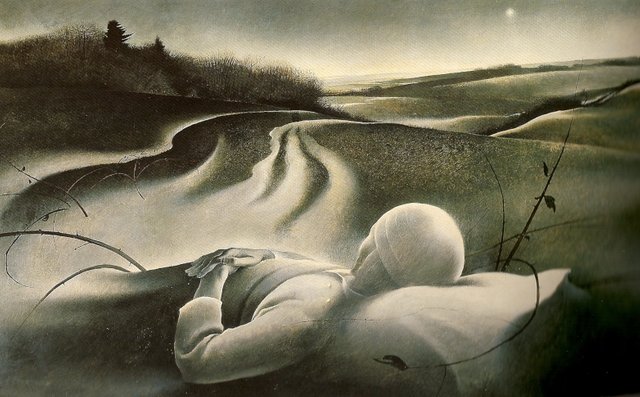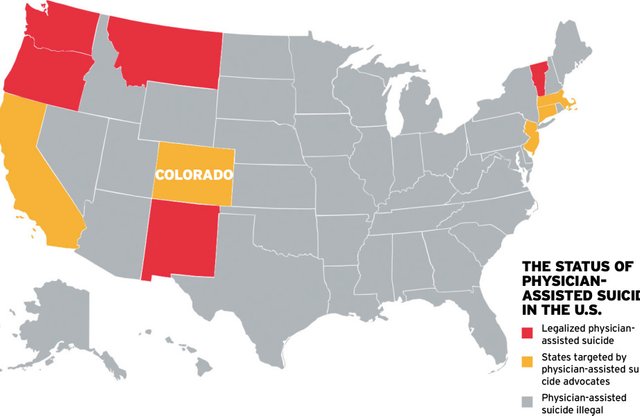A Uncomfortable Conclusion
Medicine has a checkered past. For as many lives that have been saved and improved, there have been many who have suffered at the hands of that progress. Yet, these mistakes medicine has made, the missteps health care has taken, it has sought to correct and improve. Whether it be drugs differences/side effects for men and women. Less invasive surgeries, and faster recovery times; a consumer focused healthcare to improve privacy and comfort; better diagnostic technology and procedure; along with improved treatment of mental health. This is not to say healthcare is perfect, there are some deep flaws that still exist, but there is lots of dialogue and movement toward reform.
What hasn't changed in healthcare, is how we die. Particularly the elderly
Before the introduction of nursing homes, and other elderly care facilities, the younger generations often took care of their parents in their own home. It was out of respect for what they provided while parenting, but also there weren't many places for them to go. There were Almshouses in the early nineteenth century, but the nursing home we recognize today started to take shape in the consequence of the Social Security Act of 1935.
Since that time, we really haven't changed how people have died. I have worked as a CNA for a few years and in a long term care facility that had hospice patients (hospice is for people with less then 6 months to live). I helped take care of theses individuals in their twilight. Individuals who have had amazing lives, accomplished so much and have created such loving families. It is a pitfall that we forget how much life these people have lived and how similar they lived them to ourselves. These wonderful individuals though have lost so much by this point. Mobility, the ability to control their bowls, family interactions, socialization, sometimes eating, speaking, thinking, or moving. Sometimes in the decline they are regulated to labored breaths, lying in bed for days. I've had many a resident ask to die, ask for god to take them. I've had many a resident unable to communicate or move. Just imagine not being able to communicate pain, thirst, or hunger, unable to talk to a single person. This is not only torturous, but humiliating.

So why do people have to die like this?
We put animals down when their quality of life declines to a certain threshold. Yet, we let our loved ones suffer for days, weeks, sometimes months in agonizing pain begging to be taken, or a catatonic state so stripped of identity it brings a tear to your eye. Assisted suicide has cropped up over the years as the humane way to alleviate these individuals of suffering.

currently only 5 states have legal assisted suicide. Often called Right to Die
The most butting argument against it, is the religious and moral one. I think it would be tough for anyone to say suicide is ideal no matter what the scenario. As strongly as I feel it is appropriate in some situations, it would be immensely difficult to be a part of. Being the entity facilitating in the process would be difficult to say the least, and probably would feel wrong. I would wrestle with myself, but I know if roles reversed and I was in that bed, I would be grateful for the opportunity to pass on my own terms. Surrounded by family, still able to talk and say goodbye, laughing and reminiscing about the memories over the years.
Not reeling in pain, unable to recognize or communicate with my loved ones. Where they have to watch me suffer, a shell of my former self and what they remember of me. They have to leave the room so I can be changed.
I could never argue with someone who doesn't believe in physician assisted suicide, I myself am a member of the Lutheran church, individuals have every right to believe it and share that sediment with me. But that shouldn't mean taking the decision out of someones hands when they reach that point in their lives.
The other push back comes from concern over the law and how to make the process fair and full proof so this isn't abused or broadened. I also hear the slippery slope argument, "well, what if a adult wants to kill themselves, then that should be allowed"? First of all, the elderly patients that would utilize this are not not committing suicide because they don't have some sort of physician permission, they physically aren't able to. If an adult or teen wants to commit suicide, how could this program possibly help facilitate that?
In the states that do allow the law, here are the guidelines.
The stipulations apply to a very slim portion of the population. For reference, 111 people exercise this Act in the first six months of California enacting this law, or .0000028% of the population.
This is a tough issue, and one that excites a lot of emotion, but I hope people can look at this objectively and I hope healthcare can catch up to how we treat death in this country, our loved ones deserve better.
Thanks Steemians,
The key phrase here is “mentally competent”. Who are we to forbid anyone from doing something they want, if they aren’t directly harming anyone but themselves? Great post.
Downvoting a post can decrease pending rewards and make it less visible. Common reasons:
Submit
Thanks a lot! Yah, it is interesting how we take such pride in our freedoms, yet there are some that still elude us.
Downvoting a post can decrease pending rewards and make it less visible. Common reasons:
Submit
Great expose.
Downvoting a post can decrease pending rewards and make it less visible. Common reasons:
Submit
Thank you
Downvoting a post can decrease pending rewards and make it less visible. Common reasons:
Submit
Assisting Suicide, I can't imagine me helping someone doing it...Takes a lot of courage....
So nice of you to read my intro post..Thanks Buddy
Downvoting a post can decrease pending rewards and make it less visible. Common reasons:
Submit
Very welcome, glad you enjoyed the post
Downvoting a post can decrease pending rewards and make it less visible. Common reasons:
Submit